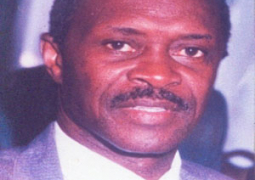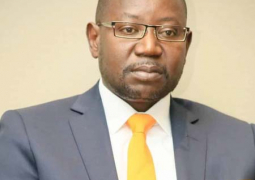The campaign to accelerate the eradication of Female Genital Mutilation (FGM) takes root in Niamina East, West and Dankunku Districts in the Central River Region South.
Thirty men and women have completed a three-day training session on Advocacy Strategies to Eradicate Female Genital Mutilation held at Kudang.
The training course was undertaken by GAMCOTRAP in partnership with the UNFPA and the Gambia government under the 2012-2016 country programme.
The training workshop brought together men and women selected by their district chiefs through their alkalolu to be trained as community-based facilitators (CBF) to engage in advocacy to end FGM and other harmful traditional practices.
The training curriculum covered topics on community work, GAMCOTRAP and its activities, rights education; FGM, effects of FGM on women’s health and FGM and religion; gender-based violence, as well as advocacy and social mobilization strategies to end FGM.
In his statement, the chief of Niamina East, Seyfo Alhajie Kebba Touray, thanked his fellow chiefs in the Niaminas for identifying the participants. He noted that promoting women’s rights should be the concern of men too, because women are human beings.
He emphasized the importance of knowledge, and made reference to the Quranic injunction for Muslims to realize that Allah has not put any responsibility on humans that is a burden on them.
“Therefore, a ‘mustahap’ should not be a burden on Muslims” he asserted. Seyfo Alhajie Kebba Touray called on people to not only learn from the knowledgeable, but to recognize and respect them. He opined that ignorance causes harm, and that the knowledgeable cannot be equal with the ignorant.
Seyfo Touray told participants that they have a responsibility to share the knowledge gained with respect, humility, patience and with perseverance. He finally prayed for a successful training course.
The Executive Director of GAMCOTRAP, Dr. Isatou Touray, reiterated the importance of respect for elders among the participants. She called on them to be open-minded in engaging with their communities in order to earn their respect.
Dr. Touray advised them to respect the community structures, the rights of the people and be truthful in their interactions with them. She emphasized that they should take honest leadership values, and to avoid discrimination based on class, caste or economic status of people. She concluded that as FGM affects everybody, the activities should be inclusive and not based on nepotism.
Dr. Touray advised the community-based facilitators to be good role models in their communities, as they will constitute a symbol of hope to advocate and advance development in their various communities.
Fatou Trawalleh from Niamina Sambang noted that FGM continued because mothers do not witness what happened to their daughters because of the myths attached to it, and caused fear among women of reproductive age.
At the end of the training session, participants resolved that they would protect their daughters and work with their communities to reach consensus to protect girls from FGM.
Alhajie Bunja Ceesay in presenting the certificates to the participants advised them to share the knowledge gained and work with their communities, mothers in particular. The training workshop was witnessed by celebrated Sheriones in Kudang.
Their leader, Metta Conteh, told them that they have been trained and they decided to stop the circumcision of girls, and called on other circumcisers in all the Niaminas to emulate their example as has been done in other regions. She advised the participants to share the information with mothers in the rice fields and other social gathering points.
It would be noted that the training of community-based facilitators in new project sites is a key strategy to sustain the work of GAMCOTRAP in the project sites, as well as empower the communities to engage in advocacy to end FGM at their own level.
The community-based facilitators were also exposed to the different cluster villages in their districts, and were acquainted to the cluster approach GAMCOTRAP employs in its community outreach and advocacy work.




